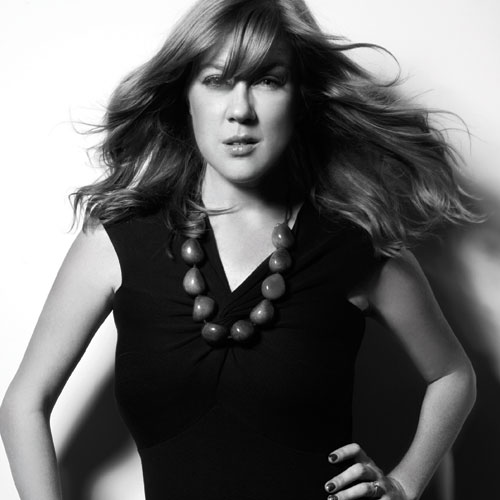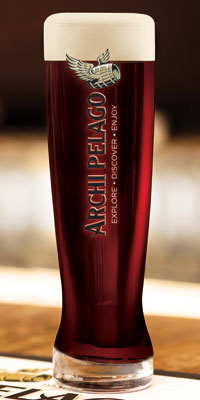Predicting the future is a mug’s game, but that doesn’t mean it can’t be fun. Which is why we set ourselves the task of identifying 20 or more hot new trends that are likely to be the talk of the town over the next few months.
We’re not claiming to be the first to talk about any of these—in more than a few cases they’re already huge elsewhere—or that they’re all things to approve of. What we’ve tried to do instead is identify the topics and trends that we think are about to blow up here in Singapore; and, where possible, clue you in on how to sample or learn more about them for yourself. At the very least, they’re all things you’re going to want an opinion on in the coming year. So read on and enjoy getting one over at least some of your friends.
1. Pisco
Move over whisky, pisco is the new word on everyone’s lips. Judging by the Peruvian Embassy’s promotional showcase at the Mandarin Orchard last month, grape brandy could well be the It Drink of 2012. Order up some Pisco sours (mixed with lime, simple syrup and egg white) to wash down Latin grub like ceviche, salt cod fritters and fish tacos. You can already find it at Bedrock Bar & Grill, Brewerkz and City Space; but expect to see it appear on more menus in the coming months. It’s not just their drinks, either. Ferran Adria, in Lima recently to make a documentary about Peruvian food, said of the country’s current gastronomic boom, “there is no other country experiencing something like this.”
2. Pinterest
Or at least other digital content curation and visual bookmarking sites like it. If you haven’t already heard of two-year-old Pinterest, it’s a site that lets you seamlessly share visual items you find online with your followers. Think of it like Facebook, but driven by beautiful images, not mindless status updates (small wonder some 97% of its fans on—yes—Facebook are women). Here’s what else is interesting: The number of visitors went up by close to 430% in the last four months of 2011; it hit 10 million users faster than any independent site in history (at least by one interpretation—they were in beta for quite a while); it generates more referral traffic to other sites than YouTube, Google+ and LinkedIn combined; and, as of last month, even Zuckerberg has a profile.
Perhaps most tellingly, Pinterest taps into increasing cycnicism about the sharing of personal data online. In light of the recent privacy scandal, in which it was discovered (thanks to a Singaporean!) that apps including Facebook, Twitter, Instagram, Foursquare and Path were uploading users’ contact databases without explicit permission, the social media landscape may be about to change. Pinterest has never been about sharing personal information, just cool stuff you’ve seen, and that bodes extremely well for its future.
3. iPad 3
What to say? It’ll be huge. Even if you wish it weren’t.
4. Myanmar
No surprises here, but the astonishing, almost-overnight transformation of Myanmar from repressive regime to come-one-come-all destination, makes it the world’s hottest ticket right now. The only problem? A lack of infrastructure. SilkAir, Jetstar and Myanmar Airways all fly to Yangon direct from Singapore, but, deprived of trade and much tourism for so long, there simply aren’t enough high-end hotels to go round and the big chains are chomping at the bit to get in. For now, booking early is essential. As for what to do there once you’ve ticked the big-hitters (Yangon, Bagan, Inle Lake) off the list? Lucy Jackson, co-director of luxury travel operator Lightfoot Travel, recommends “hopping on a luxury river boat with a Southern Myanmar Cruise to meander through the magnificent Myeik Archipelago.”
And where next? Simon Westcott, Managing Director for Mr & Mrs Smith Asia Pacific tips Sri Lanka (“back on the traveler map after years of civil war”), Tasmania (“fast gaining a rep for modern art, local produce and pristine nature”) and Fiji’s offshore islands (“where boutique retreats are a far cry from mass tourism on the main island”).
5. Sustainable Seafood
If marine life experts at last month’s Institute of Southeast Asian Studies forum are to be believed, the verdict is still out on whether forgoing sharks fin will save the predatory fish. Still, the days of unscrupulous sushi-bingeing and all-you-can-eat buffets are over. Customers today demand to know where their food comes from—and it better be from a responsible, eco-conscious source. Restaurants are doing their duty securing fresh catch from certified fisheries, and hotels like the Shangri-La, Swissôtel and Fairmont have banned shark’s fin outright. Foie gras, you should be shivering in your pants. (Check out the foodie trends that are already old elsewhere but not yet big in Singapore.)
6. Shorter Workouts
What’s not to like? Scientists in Ontario recently released the results of a study on super-short interval training, and the good news is that a strenuous 20-minute session produces the same physiological changes as a much longer workout. That’s not a complete surprise; high-intensity interval training (HIIT) was shown several years ago to do the trick, but HIIT requires you to exercise at 100% of your maximum heart rate (MHR), and that’s a little scary for some. What this latest study shows is that, in fact, a 20-minute session of minute-on, minute-off intervals at just 90% of your MHR (deduct your age from 220) delivers significant improvements to your fitness.
John J Sweeney, Fitness Development Director of new spot Celebrity Fitness reckons this is primed for the big-time: “People want shorter, fun workouts and these classes are becoming increasingly popular. In the US, there’s a shift towards group fitness classes that are in 30-minute formats, and more experts are advising 20-minute strength training sessions.” Hooray to that.
Also big in the world of fitness elsewhere: Cheap gyms. In the UK, chains like easyGym and Fit4Less have recently scored big wins against the more established chains by offering memberships from as little as £10 ($20) a month. It’s probably just wishful thinking that it might happen here, though.
7. Incentivized sharing
Forget daily deal sites. The future is discounts and giveaways in exchange for sharing content online. The stats don’t lie: Close to 60% of social media users say being offered a discount or deal would make them post about a product or service. Combine that with social search (the weighting that the likes of Google+ increasingly give to posts from within your network of followers) and a model emerges in which the likes of Groupon are no longer needed. 8. Hair Chalk
8. Hair Chalk
Hair what? Thanks to sites like Pinterest, nano-trends are spreading faster than ever. The latest, according to celebrity hair and makeup artist Andrea Claire, is hair temporarily colored with artist chalk that washes out the next day. Bad news for blondes, though: it can stain for up to a week.
9. Mary Katrantzou for Topshop
Top-drawer designers collaborating with high-street labels is no longer news. But, boy, do people still get excited. This year’s hot tip is a toss-up between the Marni for H&M collection, and the 10-piece collection for Topshop from the Greek designer beloved of Anna Dello Russo, Alexa Chung and Keira Knightley. Marie Choo, director of Alchemy Consultancy is plumping for the latter: ” She’s one of the hottest designers of the moment. Her main collection costs upward of thousands of dollars but with Topshop, it will be more accessible, and feature her trademark vibrant and opulent prints, as well as intricate detailing and structures, including her signature porcelain bowl-inspired skirted dresses.” Get in line, ladies: The collection launches March 10.
Katrantzou isn’t the only emerging star to watch, mind you. Tracy Phillips, Director of Present Purpose, reckons this is the year when former “next gen designers” will enter the mainstream. “You could already see the shift during the recent big fashion weeks in NYC and London,” she says. “It’s names like Katrantzou, Simone Rocha and Prabal Gurung, unheard of just four short years ago, that are causing the bulk of the excitement. A lot of this has to do with these young designer collaborations with high street labels and B2C businesses like Moda Operandi, which helps bring cutting edge design to a much broader audience.”
10. Mobile Visual Search
Those funny squares of code you see on billboards and throughout magazines (like ours)? They’re Quick Release (or QR) Codes and if you scan them with a special app you’ll be taken directly to a website—you’ll hear people say they’re the future. The good news if you haven’t already got your head around them? Their days are probably numbered and they’re about to be replaced with Mobile Visual Search (MVS), a new kind of augmented reality.
Shoot a picture of something you like with your phone’s camera (no more hunting around for the scanning app) and you’ll have instant access to product and company info, perhaps even the option to buy something there and then. Instead of puzzling over squiggles of black and white code, you’re interacting directly with what you see; something that comes much more naturally to all of us.
It’s more versatile (it can even work in 3D), less vulnerable to malicious coding and, let’s face it, a whole lot cooler. You may have already come across it: Cold Storage experimented with virtual stores at Bugis and Boon Lay MRT stations late last year. And it’s only going to get bigger. Bye, bye, QR.
11. Black-Brewed Coffee
Still think espresso is the last word when it comes to good joe? Think again. Slowly and surely the world is waking up to alternative brewing methods (and moving away from milk). Too often these techniques—think syphon, filtration and cold drip—are novelty add-ons to a coffee joint’s repertoire; but Harry Grover of 40 Hands reckons “knowledge is growing and black-brewed coffees are becoming more accepted.” He points out that the Australian Barista Academy now runs alternate brewing courses (“When I did my barista training, you just learnt to perfect the art of espresso”) and that, when it comes to specialty grade beans, “their subtle aromatics and complex flavors are lost in trying to strip them out in 30 seconds of hot water, so brewed methods are the way to go.” Small wonder Grover’s curated-coffee menu at bistro Open Door Policy is labelled “The Black Stuff.”
12. Jeremy Lin
It’s been barely six weeks since the 23-year-old NBA star emerged from semi-obscurity to lead his New York Knicks to victory over the neighboring Nets, outscore Kobe Bryant in a win over the Lakers, beat the Raptors with less than a second on the clock, and have other NBA stars queuing up to declare him the next Steve Nash. Six weeks since the world was overcome with Linsanity. The reason for all the fuss? His mad skills, of course, though you first have to look past: (a) His being Taiwanese-American and thus standing in for every Asian who was ever told they couldn’t play ball; (b) the fact that he’s only 6’3”, proving you don’t have to be a freak like Yao to make it; and (c) that he’s a devout Christian, meaning the US press can talk about someone other than Tim Tebow. Expect insane levels of attention, expectation and, yes, thinly-veiled racist stereotypes to be heaped on young J-Lin this year. If the last few weeks are anything to go by, it’s Lin for the Win.
13. Instagram vs. Hipstamatic
These two leading camera apps are engaged in an epic battle of musical chairs. First, Hipstamatic excited hipsters everywhere and won the iPhone App of the Year award in 2010, but Instagram quickly followed suit and claimed the prize (and 15 million users) in 2011. But now that Hipstamatic has introduced their new “Disposable Series” or D-Series (one person shares a “roll” of Hipstamatic film with others, everyone takes turns snapping away, and no one gets to see the results until the whole film gets used up), and with Instamatic yet to roll out to Android and Windows, expect this to be a fight that just keeps on giving.
14. Multilingual Music Spots
What with the launch of Timbre’s new bilingual spot Switch at the end of last month; late-last-year Mandopop arrival Shuffle; neighboring newbie COCO; and the recent redirection of live music space TAB toward Korean, Thai and Chinese music as opposed to purely local talent, we clearly have a trend we can call our own. Whether that’s something to be proud of is another matter entirely.
15. Australian Drops
Courtesy of Robert Rees of Wine Exchange Asia, a tip for all of you tired of paying through the nose for good wine: “Thanks to the deflation of the Australian wine investment bubble here in Singapore, prices for a large range of top-end Australian wines will continue to be depressed and constitute amazingly good value drinking for the well-researched online internet shopper. Prices for these wines will become the cheapest in the world right here in Singapore because of the extent of the over-supply.” Amen to that.
As for what else 2012 has in store, based on the hype it’s been getting Stateside, we also think you’ll be hearing a lot more about sweet, affordable wines like moscato.
16. Social Running
Here’s a fun game: Stick the word “social” in front of another random word (gardening? shouting? firewalking?) and chances are you’ve predicted the next big trend. Running is no different. Local artist/sneaker customizer Mark Ong raves about Purple Lights runs. “They’re more like social gatherings where we run and catch up. Instead of hitting the bars after work, we run. It’s attractive because there is no athletic objective but fitness happens to be a byproduct.” Meanwhile, if social drinking is more your scene, then check out new local startup Bartop, which gathers together “awesome people at awesome bars.” It’s worth a quick reality check here—running (and certainly drinking) with others is hardly new. What is new is the ability to organize impromptu get-togethers with like-minded strangers on the fly. It’s the social networking that makes the magic happen. And there’s still room in the market for social sleeping, folks.
17. Crowd-sourced Travel Tips
Ric Shreves of local startup Gottagetaway thinks “travel websites simply stopped improving a few years back. It’s like the industry collectively decided that things were “good enough” and stopped investing in innovation.” He’s not the only one to think that way: giant travel portals and hotel websites are fast falling out of favor with consumers and there’s growing distrust of unreliable reviews on the likes of TripAdvisor. Step forward social networks.
Reading your friends’ recommendations and, crucially, seeing their holiday snaps, can tell you far more about whether theirs is a trip you’d enjoy yourself. Says Lucy Jackson of Lightfoot Travel, “We are seeing a trend in referrals via friends and community circles pointing them towards similar experiences. Facebook is a powerful medium for incentivizing people to book a holiday to the same destination after asking “where is that?!” when they come across an album of gorgeous scenery.” And it’s by no means just Facebook; sites and apps like Pinterest and Instagram are fast becoming the first port of call for anyone daydreaming of a break, while others are springing up specifically to facilitate social sharing of travel tips: Trippy, Tripped Off, Tripl, Gogobot, and Afar, to name but a few. It’s surely a mini-bubble, but then, as Simon Mayle, Marketing Manager of ILTM Asia points out, “The 25-44 year old high-end consumer now visits an average of 20 websites during the research phase of the trip planning process.”
And it’s by no means just Facebook; sites and apps like Pinterest and Instagram are fast becoming the first port of call for anyone daydreaming of a break, while others are springing up specifically to facilitate social sharing of travel tips: Trippy, Tripped Off, Tripl, Gogobot, and Afar, to name but a few. It’s surely a mini-bubble, but then, as Simon Mayle, Marketing Manager of ILTM Asia points out, “The 25-44 year old high-end consumer now visits an average of 20 websites during the research phase of the trip planning process.”
18. Books that Talk Back
Get ready for geolocation in your e-books. Publishers are rapidly stepping up their interactive offerings and the most interesting development looks set to be books that help you find your way. And we’re not talking about the A-Z, or cheesy self-help, but rather the ability to click on a building’s link in a travel guide and be shown instantly how to get there. Local publisher Phil Tatham of Monsoon Books predicts even more avant-garde uses of such functionality, in which a work of fiction “might weave the reader’s current location—country, street, nearby landmarks—into the story itself”. As for e-book lovers ruing the local lack of access to the likes of the Kindle Store and Apple iBookstore, 2012 should also see the establishment of several more local e-bookstores to rival SingTel’s Skoob. 19. (Even) Better Beer
19. (Even) Better Beer
The craft beer movement here looks in rude health. Last month saw the launch of bold new flavors from both Archipelago, with their 40 Hands tie-up, a coffee schwarzbier called ARCHIpresso, and Brewerkz, who introduced a chocolate porter. Expect to see plenty more in the coming months with Archipelago in particular now championing “collaboration” as much as “innovation”. Similarly encouraging is the launch (scheduled for March 15) of a Beer Trail from the folks behind the Disloyalty Coffee Card, covering venues like Jibiru, Old Empire and newbie Heart of House.
20. CrossCore180
Forget TRX (those odd-looking yellow-and-black cables you avoid in the gym), the CrossCore180 is the latest mouthful-of-a-word in bodyweight training equipment—at least until the next one comes along. Nikhil Abraham of Phyzique, who runs bootcamps using this new machine (it launched in the US just six months ago), reckons the hype is justified. “It’s different from the other suspension trainers,” he explains, “because it allows rotation, which is essential to human movement. There are countless exercises you can do on it to work the whole body—and it can be used as a cable machine when we add dumbbells, a kettlebell or super bands to it.”
21. Barrel-aged Cocktails
Now that cocktail culture is firmly established here, it’s only a matter of time before everyone starts talking about barrel-aged drinks. Nothing will ever replace bespoke tipples but those tired of finicky, eight-ingredient drinks will appreciate barrel-aged varieties. Already a hit in New York, the pre-mixed libations are stored in wooden casks to develop a more intense, fuller flavor. “It cuts down multiple steps in the process of the drink making,” says Raveen Misra of Néktar, “which works out great for the end consumer and the mixologist because it saves time.” Misra himself has been doing bottle-ageing for a while and is introducing wood into the mix, though not in barrels as “untreated French oak wood is a real bitch to find!” You can however find limited quantities of barrel-aged cocktails at 28 HongKong Street. Misra also thinks this year will see a greater emphasis on R&D kitchens to develop secret recipes, as well as master classes with foreign cocktail stars, like Marian Beke, head bartender of London’s The Nightjar, who dropped by Nektar last month. Also look out for one-off partnerships like the Tippling Club’s Juniper Sling ($23), a quaffable form of its namesake Penhaligon’s fragrance. 22. The Next Lana Del Rey
22. The Next Lana Del Rey
Hard to believe we’re already looking for one. But that’s how fast the music blogosphere moves. (Although, when we spoke to Universal Music, they tried to tip LDR, despite the fact that it’s been a full nine months since “Video Games” was released.) We’re putting our money on Chicago brother-sister duo Natalie and Elliot Bergman, who record as Wild Belle and whose January debut single “Keep You” blends synth-pop, reggae and horns to magical effect.
How trendy is Singapore? Find out in our interview with Henry Mason, head analyst at Trendwatching.com.





